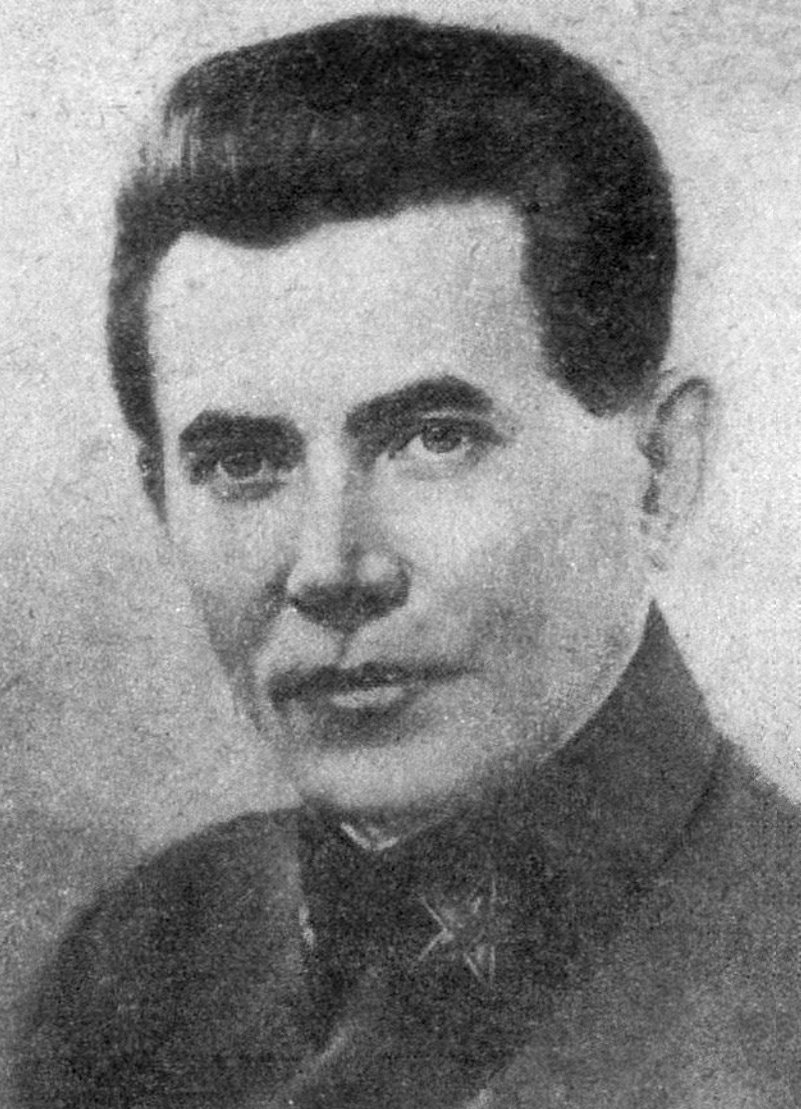More languages
More actions
(Created page with "'''Nikolai Ivanovich Yezhov''' was a Soviet statesman who served as the People's Commissar for Internal Affairs from 1936 to 1938. He was responsible for most of the Great Purge, also known as the '''Yezhovshchina''', in which tens if not hundreds of thousands of Soviet citizens (many of whom were innocent) were arrested, often on false or trumped-up charges, and killed. Yezhov w...") Tag: Visual edit |
(Purges and infobox) Tag: Visual edit |
||
| Line 1: | Line 1: | ||
'''Nikolai Ivanovich Yezhov''' was a [[Union of Soviet Socialist Republics (1922–1991)|Soviet]] statesman who served as the [[People's Commissar for Internal Affairs]] from 1936 to 1938. | {{Infobox politician|name=Nikolai Yezhov|image_size=200|birth_date=1 May 1895|birth_place=St. Petersburg, [[Russian Empire]]|death_date=4 February 1940|death_place=[[Moscow]], [[RSFSR]], [[Soviet Union]]|death_cause=Execution|nationality=Russian|image=Nikolai Yezhov.png}} | ||
'''Nikolai Ivanovich Yezhov''' (1 May 1895 – 4 February 1940) was a [[Union of Soviet Socialist Republics (1922–1991)|Soviet]] statesman who served as the [[People's Commissar for Internal Affairs]] from 1936 to 1938. He was responsible for most of the [[Soviet purges of 1937–1938|Great Purge]], also known as the '''Yezhovshchina''', in which tens if not hundreds of thousands of Soviet citizens (many of whom were innocent) were arrested, often on false or trumped-up charges, and killed. Yezhov was part of a conspiracy much larger than himself tasked with overthrowing the Soviet government, and the mass killings that he presided over were carried out in an attempt to cover his tracks and create discontent among the Soviet populace. Yezhov fell victim to his own purge in 1938 and was executed in 1940. | |||
== Political career == | |||
=== Great Purge === | |||
Yezhov signed [[Joseph Stalin|Stalin]] and [[Vyacheslav Molotov|Molotov]]'s execution orders of 75,950 known criminals in July 1937. Stalin began to oppose Yezhov's excesses as early as October 1937 and openly criticized him in January 1938. [[Lavrentiy Beria|Beria]] believed Yezhov was a [[German Reich (1933–1945)|Nazi]] agent, and the [[Council of People's Commissars of the Soviet Union|Sovnarkom]] and [[Central Committee of the Communist Party of the Soviet Union|Central Committee]] ordered him to stop executions and mass arrests on 11 November 1938.<ref name=":0223">{{Citation|author=Ludo Martens|year=1996|title=Another View of Stalin|chapter=The Great Purge|isbn=9782872620814|publisher=Editions EPO|pdf=https://gateway.ipfs.io/ipfs/bafykbzaceab64vxtxpqt2cdl4zsrsftmedqidn4foq74gr25qkd35z5nwogdi?filename=Ludo%20Martens%20-%20Another%20View%20of%20Stalin-Editions%20EPO%20%281996%29.pdf|page=164–167}}</ref> | |||
== References == | |||
Revision as of 21:47, 12 March 2023
Nikolai Yezhov | |
|---|---|
 | |
| Born | 1 May 1895 St. Petersburg, Russian Empire |
| Died | 4 February 1940 Moscow, RSFSR, Soviet Union |
| Cause of death | Execution |
| Nationality | Russian |
Nikolai Ivanovich Yezhov (1 May 1895 – 4 February 1940) was a Soviet statesman who served as the People's Commissar for Internal Affairs from 1936 to 1938. He was responsible for most of the Great Purge, also known as the Yezhovshchina, in which tens if not hundreds of thousands of Soviet citizens (many of whom were innocent) were arrested, often on false or trumped-up charges, and killed. Yezhov was part of a conspiracy much larger than himself tasked with overthrowing the Soviet government, and the mass killings that he presided over were carried out in an attempt to cover his tracks and create discontent among the Soviet populace. Yezhov fell victim to his own purge in 1938 and was executed in 1940.
Political career
Great Purge
Yezhov signed Stalin and Molotov's execution orders of 75,950 known criminals in July 1937. Stalin began to oppose Yezhov's excesses as early as October 1937 and openly criticized him in January 1938. Beria believed Yezhov was a Nazi agent, and the Sovnarkom and Central Committee ordered him to stop executions and mass arrests on 11 November 1938.[1]
References
- ↑ Ludo Martens (1996). Another View of Stalin: 'The Great Purge' (pp. 164–167). [PDF] Editions EPO. ISBN 9782872620814
